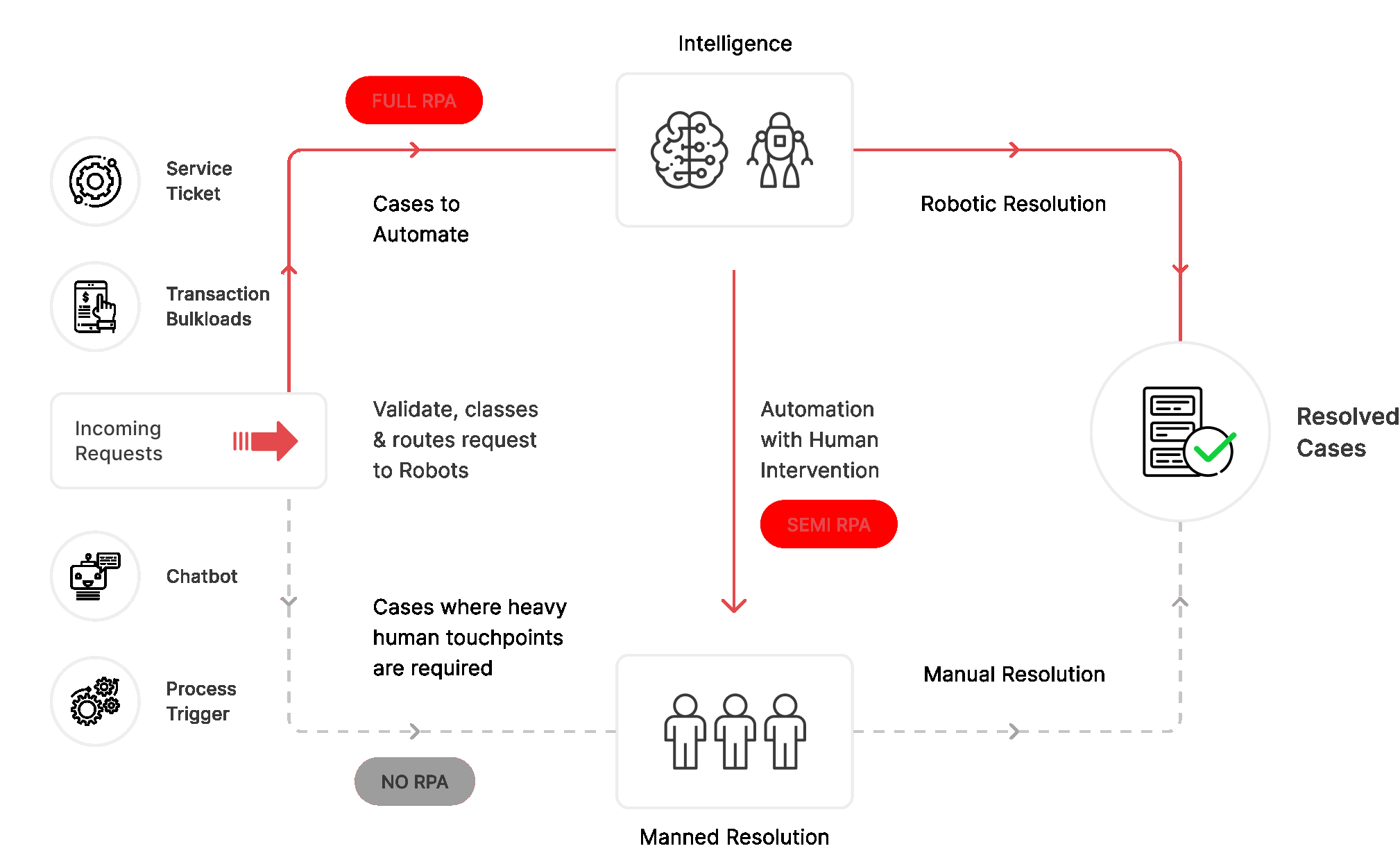AlliedSoft
Robotic Process Automation
Robotic Process Automation (RPA), the next generation of workflow automation has unique capabilities of launching and operating multiple software within the flows, thus enabling straight-through processing of workflows. This offers excellent opportunities for organizations, to speed up on large voluminous mundane tasks, reduce human errors, and save costs.
The key challenge is to identify the right processes for RPA, deploying broader integration IT skillsets, and smart governance for implementation. RPA tools are augmenting cognitive technologies like predictive modeling and machine learning to enhance business impact through automation.
ADSL is a pioneer in the area of workflow and automation, being in the services business for many years.
The successful journey with its ITSM platform ADiTaaS is adorned by several milestones of deploying ITIL and custom workflows across several global customers as well as deploying automation scripts to automate piece-meal tasks in enterprise infrastructure operations.
We deploy RPA across IT as well as non-IT business functions such as Finance, HR, Marketing and industry verticals such as Insurance, BFSI, and E-governance.
Driving RPA implementations using third-party tools such as Automation Anywhere, UI Path and others
Automating the first level interaction process at our call-center, including voice and multi-lingual access capabilities
Leveraging end-user task automation using its NLP based ChatBots as part of ADiTaaS ITSM
Building automated governance of various enterprise digitalized services, leveraging ADiTaaS platform. Deploying ITIL across several non- IT business functions
Service Offerings
Our Experience
Transformation without compromise
Specialization in writing Shell programming including Python and Perl Machine learning capabilities and analytics
IT domain knowledge, especially in IT infrastructure and standard enterprise applications such as Microsoft, SAP, and Oracle
Our Methodology
Benefits
Driving significant efficiencies including throughput reliability, reduced human error and cost. Establishing new control points in processes to build improved governance of several digitalized services including integrated third-party services. Chain business lines and processes.
Augmenting cognitive technologies to already implemented RPA to add system intelligence thus reducing exceptions. Saving costs on deploying IT services for end-users and enterprise infrastructure due to gained efficiencies in RPA. Accelerating “time to value” by the faster implementation of new supply.
Was this article helpful?
YesNo







Comments are closed.